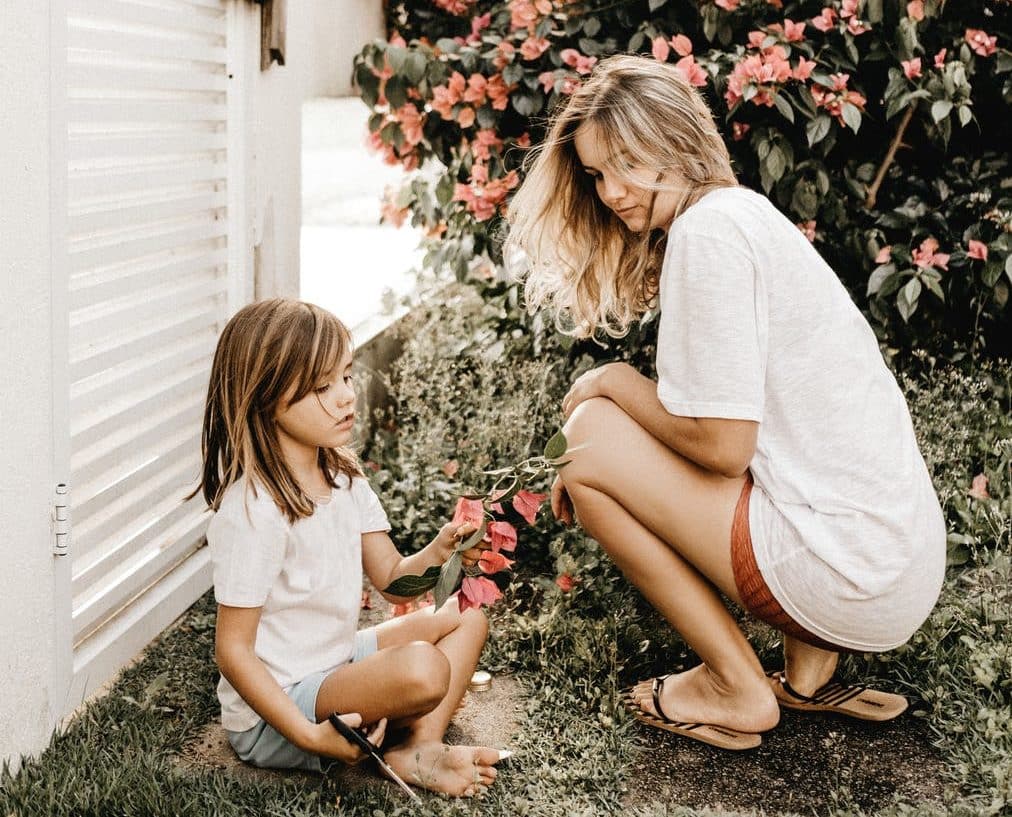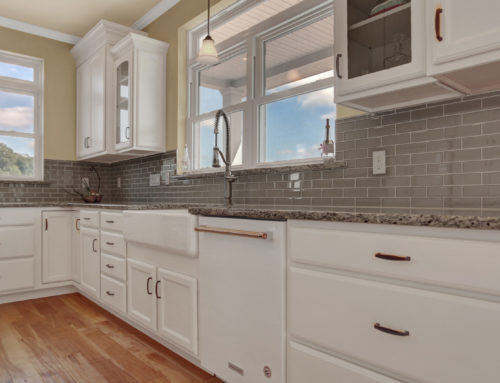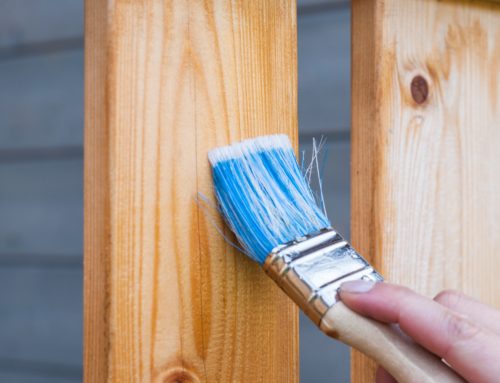By: John Riha Reprinted from HouseLogic.com with permission of the NATIONAL ASSOCIATION OF REALTORS®.
Get your kids outside and spark their creativity with fun, simple home improvement projects. Plus, you’ll boost your curb appeal. If you’re looking for ways to unplug your children and get them some fresh air, try these engaging outdoor projects. You’ll introduce them to a little pride of home ownership while adding some finishing touches that’ll ramp up your home’s curb appeal. When making stuff with kids, remember the Keep-It rules: Keep it safe. Use gloves and safety glasses when necessary. Keep it simple. They’ll come away with a sense of accomplishment if it’s a project they can handle easily. Keep it under an hour. Kids’ attention spans are short.
 Making stepping stones
Making stepping stones
This classic kids’ project never gets old — it’s gooey, messy, and arty. You’ll make the stones using ready-mix concrete or mortar; a 40-lb. bag makes 3-5 stones. Make your own forms with wood, or use old pans, aluminum cake pans, or anything that’ll create a 2-inch-thick stone. While the concrete is still wet, decorate with beads, tiles, marbles, and polished pebbles. Wait 48 hours until the concrete is dry to remove it from the form. Cost: A 40-lb. bag of ready-mix mortar is $6.- Painting your mailbox
Put a little sizzle in your snail mail when you let your kids paint the mailbox. Un-mount the box and clean it first. When dry, give it a coat of metal primer, then let your kids’ muse take over. Inexpensive craft store stencils help keep designs on track. Take the kids to the store and let them pick out designs. Don’t forget to include house numbers. Cost: Primer, $5; acrylic craft paints, $20-$40 set of 10 colors; plastic stencils, $1-$2 each. - Planting a shrub that attracts hummingbirds and butterflies
There’s some delayed gratification with this project — the payoff doesn’t happen until the critters find the shrub — but the fun factor is high when they do. Keep the digging to a minimum — one or two plants are plenty. Make a generous hole and have the kids fill it with outdoor potting soil, and put them in charge of watering as the plant roots in. Hold a contest to see who spots the first wildlife visitor.Nectar-producing shrubs that attract hummingbirds include Hibiscus, flowering quince (Chaenomeles), and Lantana. Butterflies like butterfly bush (Buddleja) and Potentilla.Cost: $10-$30 per shrub; a bag of potting soil is $9. - Building a garden gate arbor
It’s easier than it sounds. You’ll find simple DIY kits at home improvement centers that you and your team can put together in 1 to 2 hours. If that challenges younger kids’ attention span limit, let them wander away for a bit, then call them back when it’s done. They’ll love carrying the finished arbor to the garden and setting it in the ground. Cost: $150-$250 for a wooden kit. - Adding solar lights
This is one of the easiest projects. Gather up some solar walkway lights — the kind mounted on a stake — and have your kids put them along your sidewalk, paths, and at the edge of garden beds. When the sun goes down, they’ll get a kick out of seeing the lights switch on. Cost: Outdoor lighting comes in all styles and prices, but you’ll find an 8-pack of solar stake lights under $50 at your home improvement center. - Stacking a tipsy-pot plant tower
Here’s a great optical illusion that kids will really dig. Stick a ½-inch diameter wooden dowel or piece of copper pipe firmly into the ground or a big pot. Put clay pots of various sizes onto the pipe, threading the pipe through the drain holes. Fill the pots with soil and tilt them at crazy angles — the rod holds all the pots upright. Plant easy-care impatiens or petunias. Cost: Copper pipe is about $3 per foot; an 8-inch-high clay pot is $4.
John Riha has written seven books on home improvement and hundreds of articles on home-related topics. He’s been a residential builder, the editorial director of the Black & Decker Home Improvement Library, and the executive editor of Better Homes and Gardens magazine.











